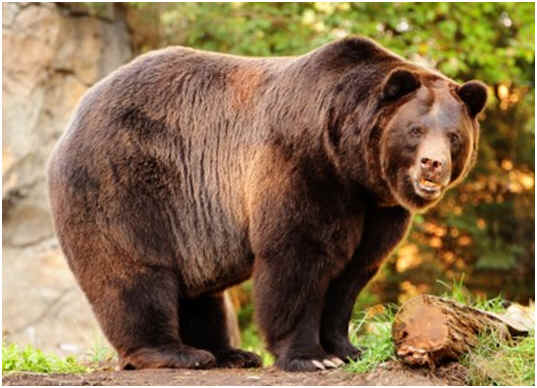
Since animals which have evolved to hunt in the daytime may see diminishing returns when the lights are out, shifting their schedules can result in reduced fitness, reproduction levels and even survival rates. These changes can cascade through an ecosystem. "Even apex predators that typically don’t have to fear anything were showing a strong avoidance of people." “We found a strong response by all species," Gaynor says. And then there were wild boars in Poland, which went from 48 percent nocturnality in natural forests to 90 percent in metropolitan areas. There were leopards in Gabon, which went from 43 percent nocturnality without bushmeat hunting to 93 percent when it was prevalent. Some of the starkest contrasts included sun bears in the Sumatran jungle in Indonesia, which went from being 19 percent active during the night in areas with few signs of humans to 90 percent in high disturbance areas (perhaps we should now call them moon bears).

Specifically, they were 1.36 times more active during the night, compared to their counterparts who lived in areas with low to no human disturbance.Ī badger in a cemetery in South London, UK.

They found that, on average, the species analyzed had been slowly switching over to a more nocturnal schedule in response to human disturbance.
#Are black bears nocturnal or daytime animals full#
Kaitlyn Gaynor, a PhD student at Berkeley and the lead author of the research, says that the researchers rounded up data from published tables and charts recording animal activity for full 24-hour periods using methods like camera traps, live monitoring or radio collars, both in areas of high and low human disturbance.

In a recent study published in the journal Science, Brashares and his coauthors reviewed 76 studies covering 62 different mammal species. To get a fuller picture of the ways humans changed the habits of nearby wildlife, he decided to conduct a larger review of the effects of human disturbance on the sleeping and activity patterns of animals. Recently, camera traps in Africa have also revealed antelopes appearing more often at night near human settlements and hunters, he says. Some of his colleagues had noticed similar patterns: grizzly bears in Canada were becoming more active at night in response to hikers, while leopards and tigers in Nepal were doing the same in response to increased human foraging and firewood collection in their habitat during the day. “They become nocturnal not just to avoid people, but to raid crops and prey on livestock,” says Brashares, a professor of ecology and conservation at the University of California at Berkeley.īrashares studies the wide-ranging impacts humans have on wildlife and ecosystems. Not only that, but they could get revenge by orchestrating heists on their day-walking evolutionary cousins. It seemed the creatures had learned that by staying up late, they could avoid being chased down, harassed or even killed. Justin Brashares noticed it first in 2013, when he was studying olive baboons in Ghana: during times that humans were around, the primates stayed up long past their normal bedtimes.

Thanks to human activity, some daytime animals are switching over to the night shift.


 0 kommentar(er)
0 kommentar(er)
